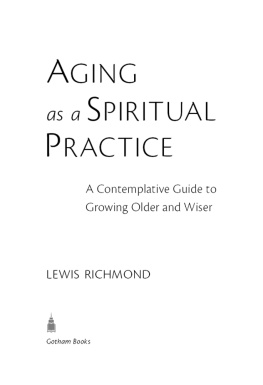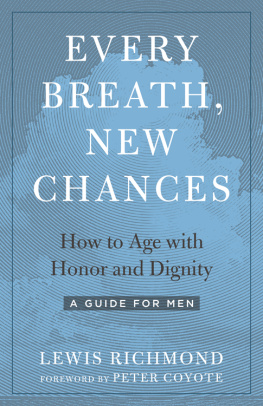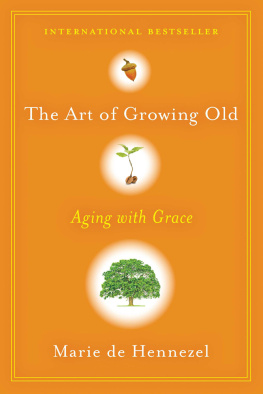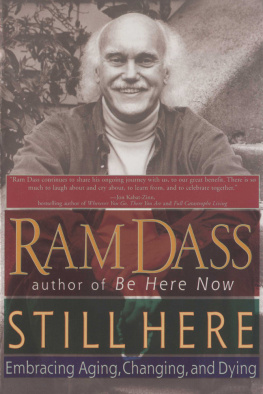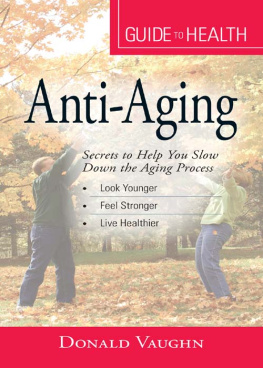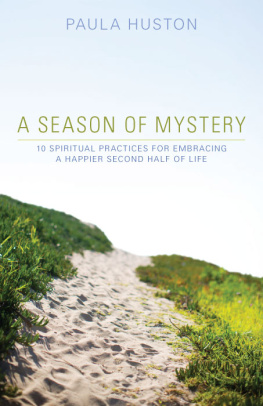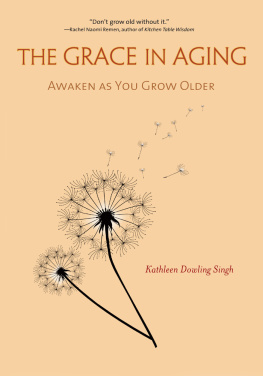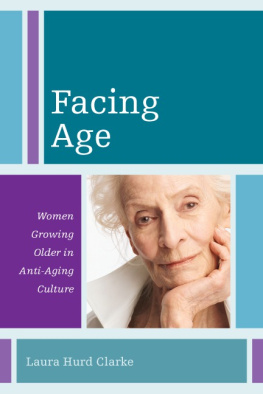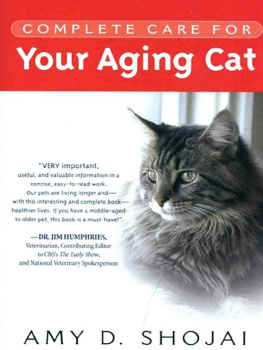Aging as a Spiritual Practice
A GING
as a S PIRITUAL
P RACTICE
A Contemplative Guide to
Growing Older and Wiser
LEWIS RICHMOND

Gotham Books
GOTHAM BOOKS
Published by Penguin Group (USA) Inc.
375 Hudson Street, New York, New York 10014, U.S.A.
Penguin Group (Canada), 90 Eglinton Avenue East, Suite 700, Toronto, Ontario M4P 2Y3, Canada (a division of Pearson Penguin Canada Inc.); Penguin Books Ltd, 80 Strand, London WC2R 0RL, England; Penguin Ireland, 25 St Stephens Green, Dublin 2, Ireland (a division of Penguin Books Ltd); Penguin Group (Australia), 250 Camberwell Road, Camberwell, Victoria 3124, Australia (a division of Pearson Australia Group Pty Ltd); Penguin Books India Pvt Ltd, 11 Community Centre, Panchsheel Park, New Delhi110 017, India; Penguin Group (NZ), 67 Apollo Drive, Rosedale, Auckland 0632, New Zealand (a division of Pearson New Zealand Ltd); Penguin Books (South Africa) (Pty) Ltd, 24 Sturdee Avenue, Rosebank, Johannesburg 2196, South Africa
Penguin Books Ltd, Registered Offices: 80 Strand, London WC2R 0RL, England
Published by Gotham Books, a member of Penguin Group (USA) Inc.
First printing, January 2012
10 9 8 7 6 5 4 3 2 1
Copyright 2012 by Lewis Richmond
All rights reserved
Gotham Books and the skyscraper logo are trademarks of Penguin Group (USA) Inc.
LIBRARY OF CONGRESS CATALOGING-IN-PUBLICATION DATA
Richmond, L. (Lewis), 1947
Aging as a spiritual practice : a contemplative guide to growing older and wiser / Lewis Richmond.
p. cm.
EISBN: 9781101554203
1. AgingReligious aspectsBuddhism. 2. Spiritual lifeBuddhism. I. Title.
BQ5435.R53 2012
294.3444dc23 2011032723
Printed in the United States of America
Set in Arno Pro
Designed by Susan Hood
Without limiting the rights under copyright reserved above, no part of this publication may be reproduced, stored in or introduced into a retrieval system, or transmitted, in any form, or by any means (electronic, mechanical, photocopying, recording, or otherwise), without the prior written permission of both the copyright owner and the above publisher of this book.
The scanning, uploading, and distribution of this book via the Internet or via any other means without the permission of the publisher is illegal and punishable by law. Please purchase only authorized electronic editions, and do not participate in or encourage electronic piracy of copyrighted materials. Your support of the authors rights is appreciated.
While the author has made every effort to provide accurate telephone numbers and Internet addresses at the time of publication, neither the publisher nor the author assumes any responsibility for errors, or for changes that occur after publication. Further, the publisher does not have any control over and does not assume any responsibility for author or third-party Web sites or their content.
To my wife, Amy, who first had the idea
FOREWORD
Getting older, especially the limitations of being older, has always provided sure-laugh material for stand-up comedians. These days there is a proliferating array of greeting cards marketed as Birthday, Senior, and Humorous. The only one Ive seen that seems genuinely funny proclaims, Getting old is not for sissies! Its funny because it makes it sound like aging is optional and that people who do not think of themselves as heroic should reject it as a possibility. Apart from the ambiguous wording, though, the message is fundamentally valid. Aging gracefully and contentedly is a challenge.
My friend Beatrice moved into an assisted living facility when she was ninety-five. She wrote to me, saying, Although I can still draw, my legs are too unstable and I need to be here. I wish you would come to teach a mindfulness class here for me and other friends who live here. We are all having trouble getting used to our new situation. The story of my going to teach is not relevant here except to say that the phrase that stays with me until now is trouble getting used to our new situation.
The Buddha taught that life was challenging for everyone because of the constantly changing nature of our experience. We get used to managing, and circumstances change. At the same time that Beatrice moved into the assisted living facility, my youngest grandchild, after two years of preschool, announced that she was worried about starting kindergarten. I wont know where to put my lunch box, she said, or where to hang my jacket. I thought about how, from one end of life to the other, we are always getting used to our new situation.
The crux of the Buddhas teachings is that peace of mind is possible in whatever circumstances one finds oneself. During most of our lives, if we are lucky, health and vigor and the prospect of years to come all support the mind in accommodating challenges. We can endure challenges, make skillful changes in our lifestyle, relationships, or work, and look forward to less stressful times. We can accommodate without the painful imperative This needs to be different now! because the mind imagines it has time.
For me, accommodating the process of growing older is different from any challenges I have had in the past because I am very conscious, even though my health is still good, of running out of time. I am grateful for whatever equanimity my spiritual practice has given me, but many of my friends are sick and some have recently died. Id like more strength and courage than I already have to be able to be with ailing friends wholeheartedly. I want to continue to cultivate enough delight in sunsets and tulips and symphonies and good movies to keep me a cheerful companion for my family and friends. Ive changed one of the phrases of my blessing practice from May I be healthy to May I feel strong so that I can say it until the last day of my life.
This book is a wonderful guidebook for gracious aging. The contemplative reflections in it are profoundly moving. I hope that you not only read this book but also take its tools as part of your spiritual practice. I have a hope for myself these days that comes from a story I heard just a few years ago about a Zen teacher, a person I had known about but had never met, who had just died. She is said to have said, as her last words, Thank you very much. I have no complaints.
Gratitude, with no complaints, is the attitude that I would like to have, not only at the end of my life, but from now until then.
May it be so for all of us!
Sylvia Boorstein
Growing
Older and
Wiser
INTRODUCTION
Growing Older and Wiser
This book is a users guide to aging well. It is not a book about diet or exercise, crossword puzzles or memory tips. Those books have already been written and offer much that is valuable and useful. This book is different. It is about aging from a spiritual perspective.
I am a Buddhist priest and meditation teacher, and spiritual practice has been the focus of my life and work for many decades. If you too are a Buddhist, then many of the contemplative reflections and spiritual lessons I write about will be familiar to you, though applying them as we do hereto benefit the aging processwill be new. And if you are Christian, Jewish, Muslim, Hindu, or some other religion, or profess no religious affiliation at all, I believe that these reflections will speak to you too, and be of use to you.
I am in my mid-sixties, so I am not a passive bystander. This journey of aging is my journey too. Many of the fears and worriesas well as the joys and rewardsof aging are mine also. I have had to grapple with the illness and death of parents, the sudden demise of friends younger than I, my own serious illnesses, loss of youthful vigor and sense of open-ended possibilityexperiences that may be familiar to you. We are all walking this path together. It is the road that those of us fortunate enough to have lived this long must take.
Next page
